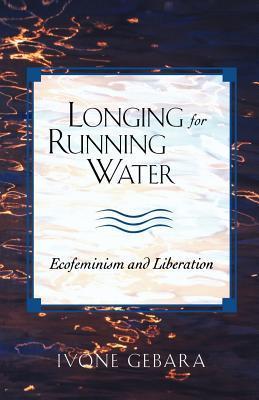This has taken me literally months to read because it's so enormously dry. The introduction and the conclusion have some sense of life in the prose, so why it all died out in the chapters proper I don't know. The chapter on epistemology almost sent me into coma.
I admit, a lot of my disappointment stemmed from the title: Longing for Running Water: Ecofeminism and Liberation. Sounds great, right? But looking at some of the other editions, some of them seem to have another subtitle (or is it a series title?) and that is Biblical Reflections on Ministry. That last is far more accurate. This is a very dry, very abstract book about religion. I am not religious. I appreciate that the author is, but I also expect the title of a book to reflect its contents, and I honestly would have thought twice about picking it up if I'd known it would be filled with things like epistemology and the language of the Trinity and the need to pray. I expected ecology to be in it somewhere, and a focus on the relationship between women and nature. Instead, there's some vague positivity about treating the planet well, and when biodiversity does get a (very brief) look-in... well. The author's not actually talking about biodiversity. She's talking about pluralism of religion, and cultural diversity. Which is fine, but my biologist self, when reading that biodiversity is the different characters of children within a family, is rolling her eyes and rolling them hard.
All of which litany of complaint may indicate that there's nothing worthwhile here, but that wouldn't be true. This book is primarily directed at Latin American Christian women, and I am only the last of these things. Definitely not the target audience. And I must say, I found it very difficult for quite a while to see the feminism in here at all, but as I slogged my way through I began to grasp that that judgement, at least, was entirely wrong. It's made me realise my understanding of feminism has been pretty limited, and I've rarely considered it in a religious context. That's a gaping blind spot, and at least now I'm aware such a blind spot exists, so credit where it's due. And I can dimly grasp what Gebara is saying here: that patriarchal religion is strongly focused on the individual and that a feminist response is to focus on relationships instead - relationships with other individuals, with other (and different) communities, and with the natural world. Furthermore, that this change in focus would lead to a more just world. The arguments are solid, as far as I can grasp, I just don't find them accessible. A move from abstraction into extended concrete examples would have made it much more appealing.

